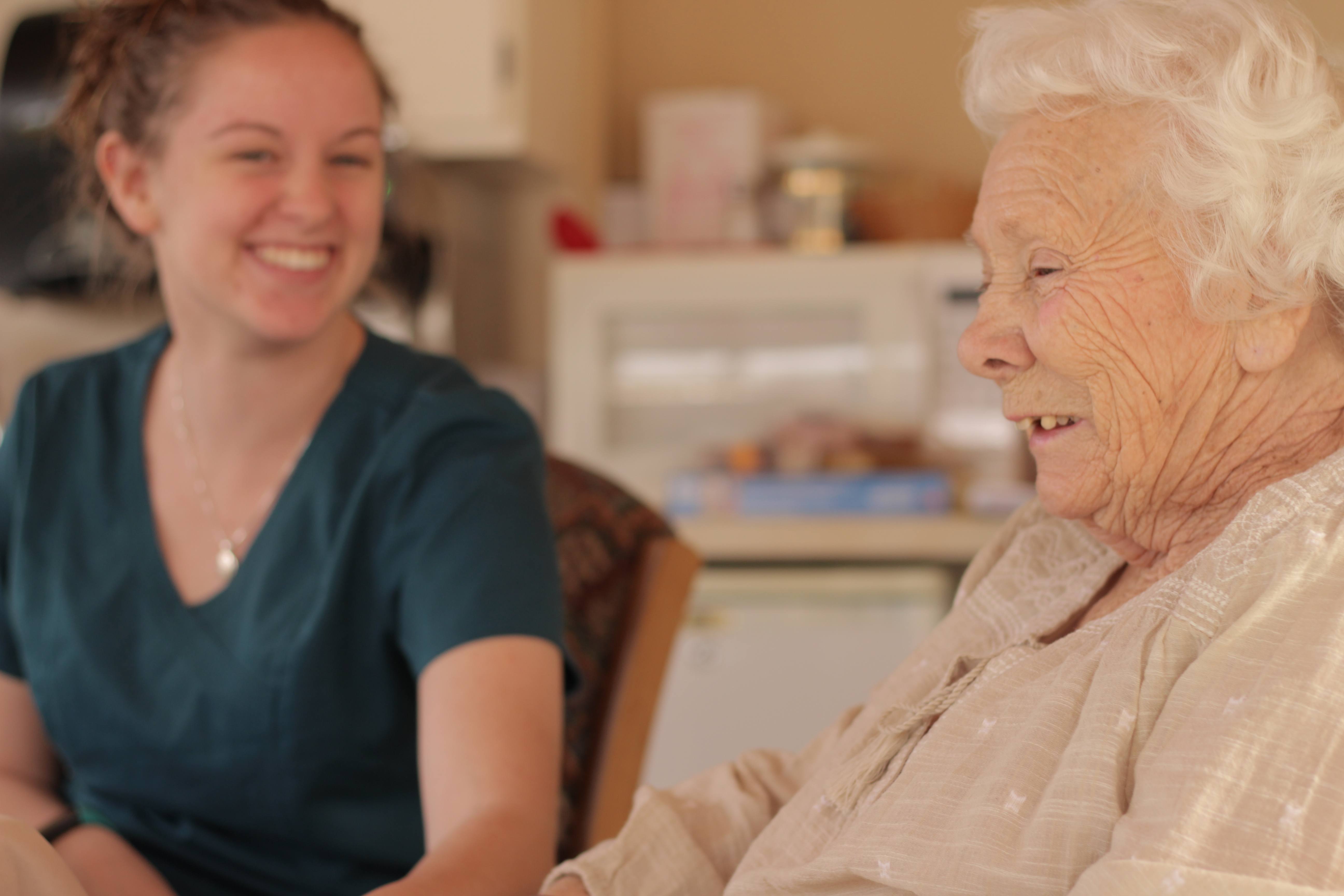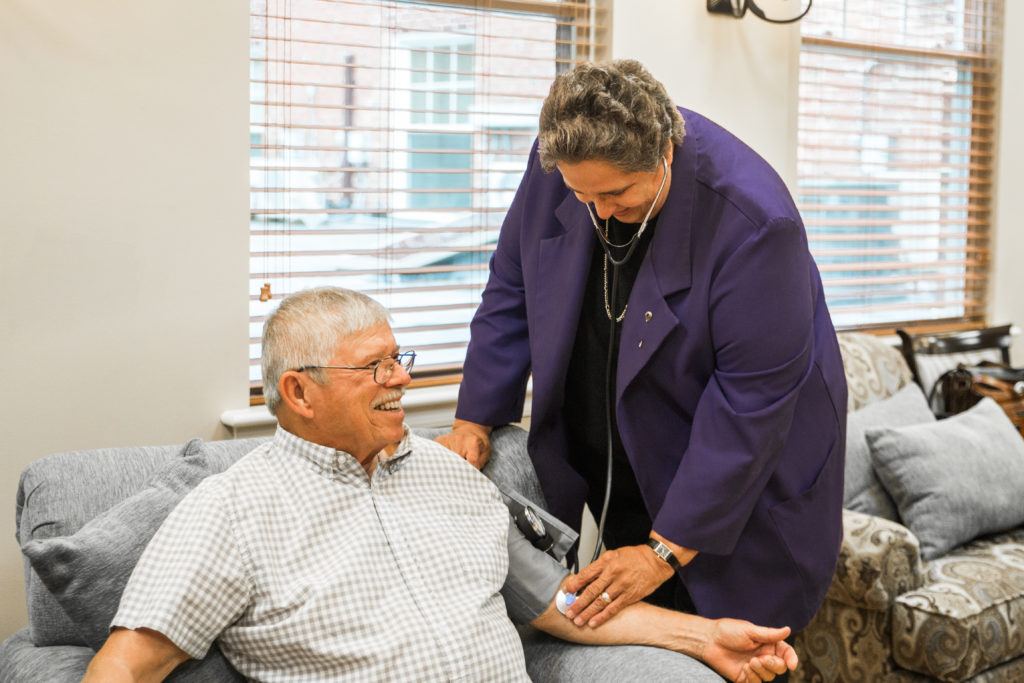Community Nurse Talks: Understanding Memory Loss and Dementia

Meet Carol Marotte! Carol is Menno Haven’s Community Nurse for all Independent Living residents. In this month’s Community Nurse Health blog, Carol takes a deeper look into understanding memory loss and dementia.
Our mental abilities are just as important as our physical abilities and even a minor change in either area can affect our daily lives substantially. Our Health Tip today will look at dementia and memory loss symptoms. These symptoms can impact the following:
- Language
- Memory
- Judgment
- Spatial relations (reasoning, direction, movement)
- Visual Abilities
Dementia symptoms can be categorized into two groups:
Reversible
Symptoms are possibly due to drug reactions, infections, malnutrition, head trauma, brain tumor, substance abuse, and circulation problems to name a few.
Irreversible
Diagnosis of Alzheimer’s Disease, Huntington Disease, Lewy Body Disease, Picks Disease, and Vascular Dementia.
There are stages of Dementia which vary in symptoms and levels of impairment.
Very Mild to Mild: Perhaps beginning to lose things around the house, missing appointments, trying to find the right word during conversations, remembering names, finding that trying to plan is more difficult, and making errors.
Moderate to Moderate Severe: Trying to do math and finances is a struggle and the need to go over and over items many times is necessary. Short-term memory issues are now becoming more evident included well-known items like phone numbers and common locations. As the disease progresses, confusion becomes more of the norm in everyday tasks and the difficulty to dress oneself appropriately or even extra layering clothing may occur. This Stage begins to heavily rely on the Caregiver (Spouse/Adult Child) to begin to help compensate and initiate safety measures.
Very Severe: Those we love may start to have personality and behavioral changes, saying and doing things that they would have never said or done before the Dementia. The ability to respond to their environment and communicate their needs with all activities of daily living.
Getting Diagnosed:
To get a proper diagnosis from a Physician may include a thorough Family history, Medical history, Medication review, Physical and Neurological exam, Blood tests, x-rays, and Cognitive exams to name a few.
If you are a caregiver to someone with dementia, here are some helpful tips:
- What hobbies or interests did they have? Look for ways to adapt those interests to their level. The familiarity of participating in something they love will decrease stress.
- Take time to listen to what they want but make sure their basic needs are being met such as hunger, thirst, and toileting. With some having limitations with finding their words or using the correct words, basic needs can get missed with the inability to express themselves
- Use good nonverbal communication such as eye contact, facial expressions, and a soft tone of voice, gestures, touch, and with your body language. We are all born with the intrinsic awareness of flight or fight.
- Pets have been known to provide comfort and connection
- Always acknowledge their feelings and validate what they are trying to express to you with empathetic understanding.
Care is more than just a word to Menno Haven. It is part of our Mission to serve you and your loved one. Our Memory Homes encourage residents to enjoy life again and provide families with peace of mind that their loved one is in an environment that is designed specifically for them.
To learn more call 717.262.2373 or visit mennohaven.org/memory

